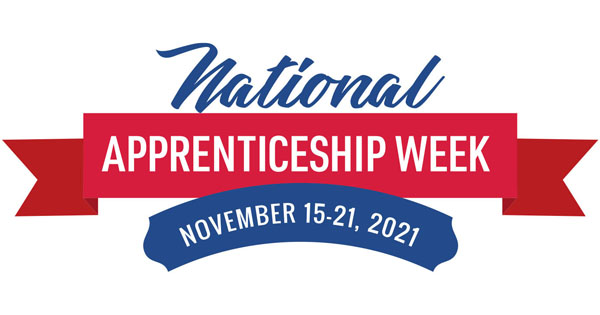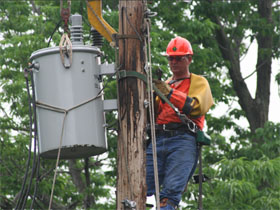OPINION
Apprenticeships in skilled trades help America build back better
National Apprenticeship Week celebrates proven ‘earn while you learn’ model
By MIKE BROWN and BRETT WIDEMAN
Nov. 15-21 marks our country’s seventh National Apprenticeship Week (NAW). The week is traditionally celebrated with proclamations, showcase events, outreach and education activities and registered apprentice profile stories of success. These are all important and meaningful activities that we applaud and promote. Information on activities throughout our nation can be found at: apprenticeship.gov/national-apprenticeship-week
 We are grateful that National Apprenticeship Week proclamations are expected this week by the Spokane and the Spokane Valley city councils. Additionally, Spokane Community College will conduct outreach and showcase activities throughout the week.
We are grateful that National Apprenticeship Week proclamations are expected this week by the Spokane and the Spokane Valley city councils. Additionally, Spokane Community College will conduct outreach and showcase activities throughout the week.
This year, we believe it is especially important to share the extensive training commitment that registered apprentices make to achieve journey-level status. As our country begins massive investments in desperately needed infrastructure upgrades and aggressive increases in electrification, there have been many overtures to job creation. And yet, there is little common understanding, even among many policymakers, of the job creation process within the skilled trades.
The $1.2 trillion bipartisan infrastructure package passed by the Congress recently makes investments over the next five years in areas including roads and bridges, broadband, water and energy systems. While we are ready to get to work, it is important to recognize that most of this work requires a highly skilled workforce, which has not been replenished at a sustainable rate over the past decades.
In the package, $73 billion is allocated for clean energy. This involves new power lines, rebuilding old electric grids and expanding green energy. In order to meet climate change goals involving strategies such as the electrification of public transportation and bringing more electric vehicle charging stations online, transmission lines must be able to handle higher voltage capacity.
We see great opportunity to grow our skilled-trades workforce in the coming years; however, it is important to realize that filling these positions is not as simple as posting a want ad in local newspapers.
 An electrical grid lineman, for instance, having reached journeyman level will have trained through a registered apprenticeship program for 10,000 hours (five years). During hands-on training, journeyman-to-apprentice ratios are also critical, often one-to-one. Further, a journeyman will complete annual continuing education units throughout their career. As new technology is introduced, specialized training and even new certifications are necessary.
An electrical grid lineman, for instance, having reached journeyman level will have trained through a registered apprenticeship program for 10,000 hours (five years). During hands-on training, journeyman-to-apprentice ratios are also critical, often one-to-one. Further, a journeyman will complete annual continuing education units throughout their career. As new technology is introduced, specialized training and even new certifications are necessary.
A lineman frequently works in some of the most dangerous conditions imaginable, including ice storms, fire storms, wind storms and other weather events. It is critical that the established high standards of registered apprenticeship training programs be maintained to protect the workers and provide the highest level of product and services to the consumers.
Welders, plumbers, HVAC/R technicians and steamfitters also require up to 10,000 hours of supervised training to reach journey-level status. This is crucial due to the precision craftsmanship needed in hospitals, schools, labs and our homes.
Not all apprenticeships are created equal. According to the Washington State Department of Labor and Industries, “Be cautious. If a company hires you informally as an ‘apprentice,’ and the apprenticeship is not officially registered with the state or federal government, you will not receive the benefits of a registered apprenticeship, including working as a journey-level professional.”
Registered apprenticeships are often appropriately referred to as the “earn-while-you-learn” model. This is one of the most powerful economic instruments that has built and sustained the middle class in our nation’s history.
The model requires a strong working relationship between the employer and the registered apprenticeship trainers. We are pleased to report strong mutually beneficial programs here in Eastern Washington.

While we are eager to play our part in rebuilding our infrastructure and addressing climate change through increased use of green electricity and renewable energy, we must insist that workers in the skilled-trades sectors are trained at the highest levels through registered apprenticeship programs. Especially in the electrical and pipe trades, the cost of using undertrained and uncertified labor will not just be inferior work product, but lives.
Both of us having recently served on Spokane’s Sustainability Action Subcommittee worked with dozens of other citizens and have proven that progressive climate change policies need not be at odds with the energy sector. Spokane’s recently passed Sustainability Action Plan involves compelling language addressing a sustainable workforce. There is no reason that a dedication to protect, preserve and promote our natural resources should adversely affect our human resources.
While Spokane is leading in addressing climate change, it is also a leader in registered apprenticeship use. As federal infrastructure funding becomes available in our Eastern Washington region, opportunity abounds to grow our bench of desperately needed registered apprentices.
We wish all registered apprentices, aspiring registered apprentices and the employers, trainers and academic institutions that support them a happy National Apprenticeship Week. Keep up the great work!

 Mike Brown is assistant business manager for International Brotherhood of Electrical Workers Local Union No. 77. Brett Wideman is business manager for Plumbers and Steamfitters Local Union No. 44. This guest column originally appeared in the (Spokane) Spokesman-Review, and is posted here with the authors’ permission.
Mike Brown is assistant business manager for International Brotherhood of Electrical Workers Local Union No. 77. Brett Wideman is business manager for Plumbers and Steamfitters Local Union No. 44. This guest column originally appeared in the (Spokane) Spokesman-Review, and is posted here with the authors’ permission.





